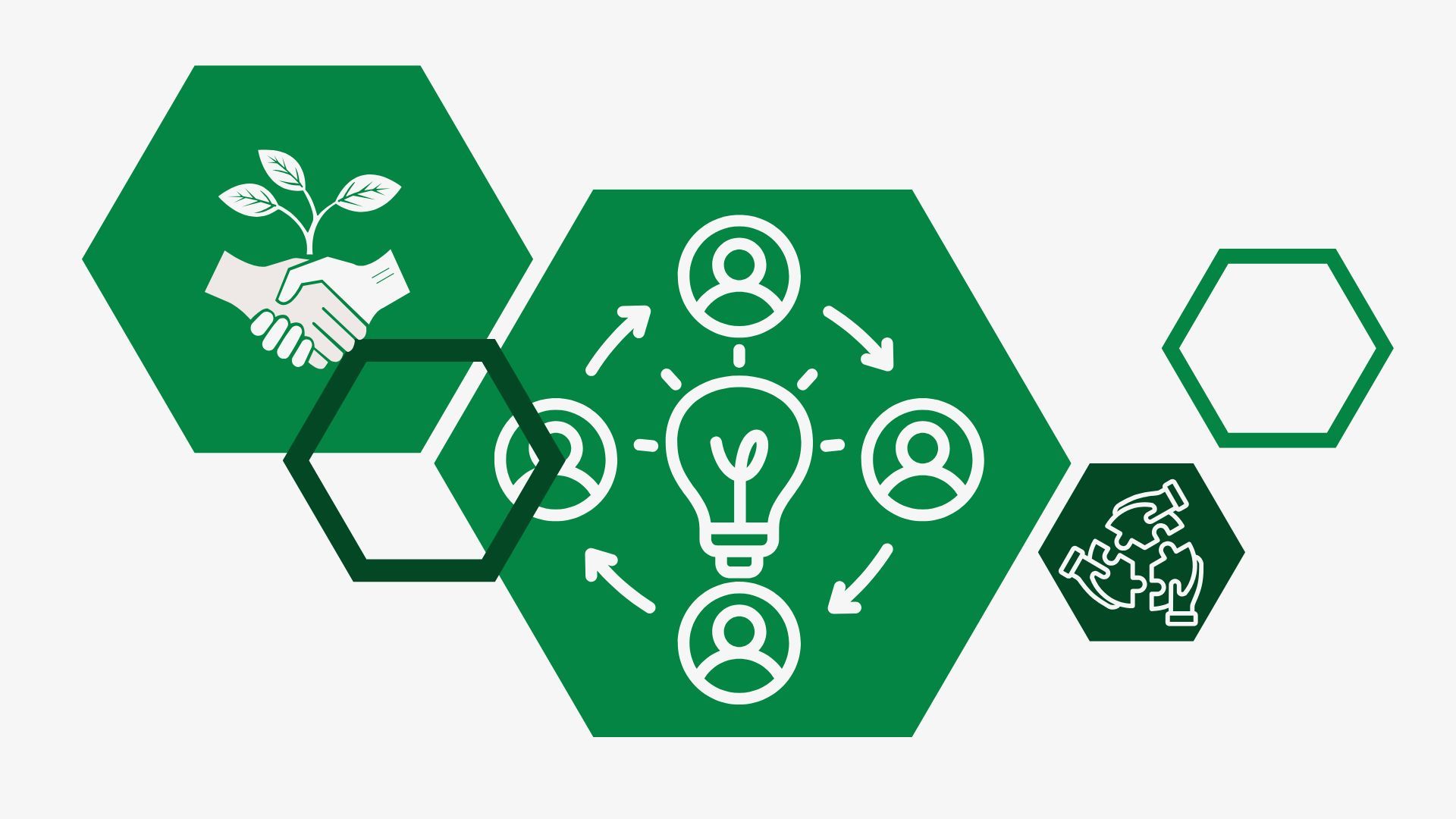Collaboration means different things to different people depending on the circumstances. It can involve time-bound cooperation, sharing information, addressing a single issue, or co-designing and delivering solutions to problems. What remains undisputed is collaboration’s ability to bring resources together to achieve greater results, as the combined energy provides a much stronger push to tackle challenges. For MacArthur’s On Nigeria Program, collaboration is a winning formula. It is a critical choice in how resources are shared to lead to desired outcomes. Collaboration reinforces our mantra that the way we work is as important as the work that we do.
We are intentional about collaboration from grantmaking to learning and tracking outcomes. As mentioned in our previous blog post, this forms the foundation of our cohort approach, where grants are awarded simultaneously to a group of potential partners who share responsibility for delivering specified outcomes toward achieving the On Nigeria goal of supporting Nigerian-led efforts to reduce corruption and enhance transparency, accountability, and participation.
We have enabled collaboration by encouraging our grantee partners to work together, both within and across cohorts, as well as with non-grantee partners. Early in the grantmaking phase, we hold conversations with the CEOs of potential grantee organizations, regardless of their grant size, age, or overall size, as long as the outcomes they strive toward are similar. The On Nigeria team fosters collaboration by prioritizing contribution over attribution. Therefore, collaboration acts as a power-balancing tool, allowing partners to negotiate, share resources, and channel their energy toward a larger collective goal aimed at achieving greater impact. Grantee partners need not fret about individual reporting because we ask, “With whom did you work?” instead of the usual direct or implied question, “Show us what you did with our money.” We have also demonstrated the proof of concept by collaborating with the donor peer community to launch far-reaching initiatives such as the Civic Defense Fund, the Nigeria Youth Futures Fund, and, more recently, in 2024, the West Africa Democracy Fund.
We have learned that adopting an ecosystem approach and demonstrating the benefits of collaboration are crucial for maximizing impact and fostering meaningful organic collaboration. While we focused on how grantee partners collaborated, we were also interested in the overall structure of the field or the broader ecosystem and how other forms of convening and cooperation might impact their work. The On Nigeria learning partner formerly known as EnCompass LLC, now housed at ITAD, conducted social network analyses to map the direction and effects of grantee partner collaboration and to gain further insights into how government, civil society, and institutions within Nigeria’s cultural context operate. The field's structure would directly influence grantee partners' ability to work effectively or pool resources together.
Documenting evidence is needed to showcase the gains of collaboration, both to measure what can be achieved when people work together and to affirm the collaborators and reference the hard work it takes to co-create solutions.
Two Encompass-led case studies of the On Nigeria cohorts of Joinbodi (Pidgin for “solidarity” or “working together”) and Criminal Justice demonstrate the successful application of collaboration by leveraging their network and convening powers to protect citizens. In the case of Joinbodi, it involves whistleblowing spaces. This includes facilitating dialogue between governmental and non-governmental players, providing pro bono legal services, amplifying efforts to share information with communities about the whistleblowing process, and offering technical advice in local languages. The case study reports small wins emphasizing an emerging cultural and normative shift around whistleblowing. The Criminal Justice cohort grantee partners have also collaborated with state-run Administration of Criminal Justice Monitoring Committees and police duty solicitor systems, engaging and training police and co-recruiting solicitors in a strategy that brings justice closer to the people by providing affordable legal services, representation, and shortening case completion times.
We witnessed collaboration as a powerful safety net, showcased by a front-page syndication of a news article protesting the government's gagging of the media across four mainstream newspapers, including an On Nigeria Media and Journalism grantee partner. Tackling this toxic issue alone carried a high probability of backlash, but collaboration averted it. The State could not punish four major media houses and the media community platforms that co-sponsored the editorial without drawing global attention to itself as a pariah state that silences dissent and stifles the media. This contributed to healthy debate and further review of the Media Act amendment bill.
On Nigeria’s Behavior Change cohort has employed an interfaith approach to enhance discussions around social change. They contribute a sense of shared responsibility and citizen-led perspectives on the issues addressed by congregants. This becomes especially important when focusing on using state resources for the benefit of all.
In addition to these lessons, we are learning that the cohort model, strong leadership, clear communication, and trust-building are essential elements for effective collaboration; however, concerns about the long-term sustainability of these partnerships remain. This is because power dynamics within the cohorts may not necessarily be resolved simply due to a commitment to work together. Differences in organizational size, the value of network resources, and even grant size may give an advantage to some while diminishing the voice or confidence of others to participate equitably. Staff attrition can also impact the quality of retained knowledge necessary for consistent collective work.
Be that as it may, grantee partners have continued to elevate the role of collaboration in doing difficult work where solidarity is important, and there are not enough resources. They seem to be saying, “Not one of us is enough” for the scale of ambition and challenges that need to be realized and confronted. They have continued to forge new alliances, including at the geographic level. We, as a team, are committed to taking these lessons forward as the country office evolves new programming.
You can also read Reflecting On Nigeria Series: Case Studies: Collaboration Stories.
